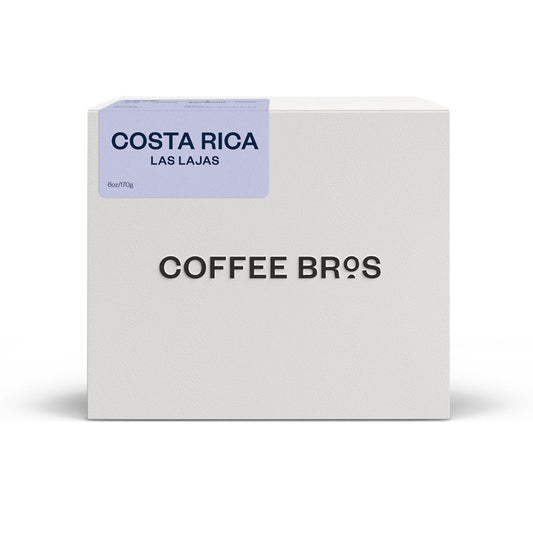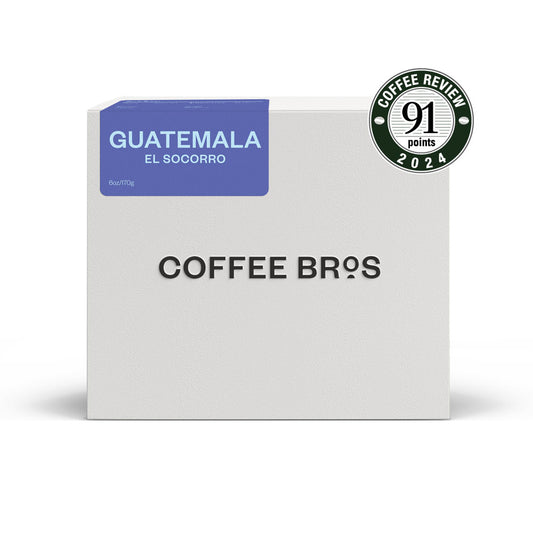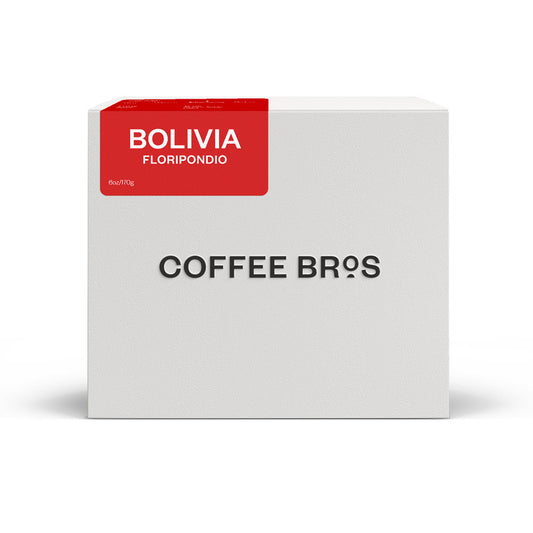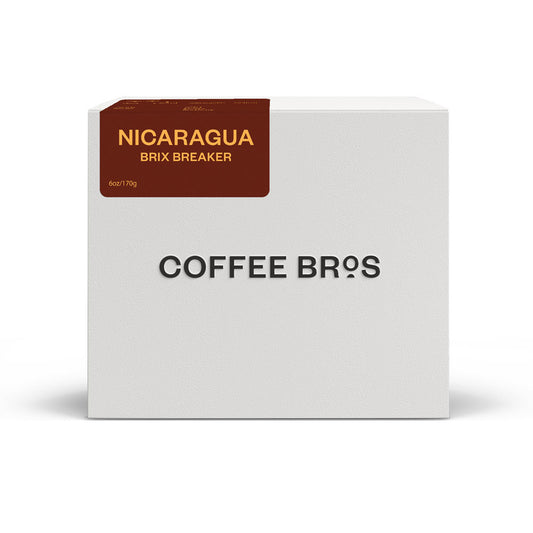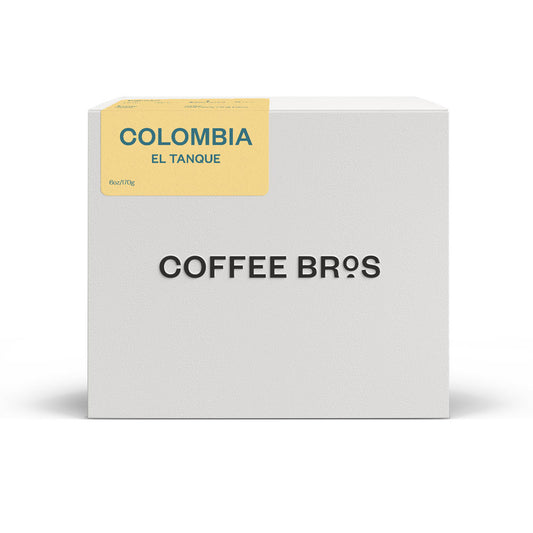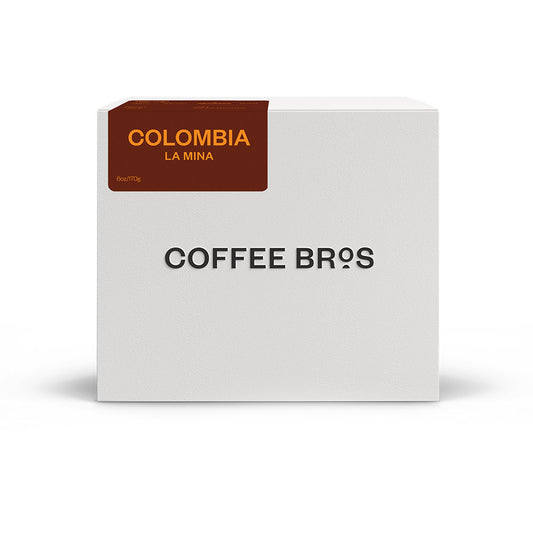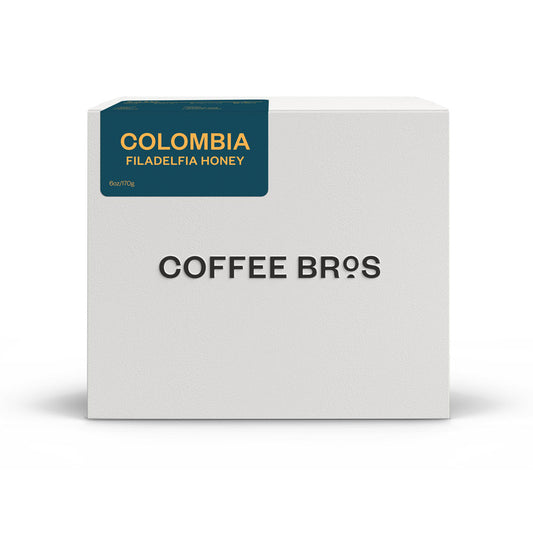Collection: Natural Process Coffee
Natural or "Dry" process coffees allow the ripe fruit to dry completely aro... und the seed before husking or hulling. Historically done by hand, this process is now performed with calibrated machinery. While commonly found in Ethiopia, Yemen, Brazil, and Costa Rica, producers worldwide are exploring this method.
Fermentation occurs during the processing of Natural coffees, initiated when an access point is created in the fruit. Yeast and bacteria enter the fruit, metabolizing sugars and acids until the coffee reaches 11% moisture. Unlike Washed coffees, Natural coffees are not held in fermentation tanks but are influenced by temperature, sun exposure, drying bed depth, and rotation.
Show more >-
Best Seller
Espresso Roast Coffee
A balanced and naturally sweet espresso - great for straight espresso or smaller milk-based drinks
A balanced and naturally sweet espresso - great...
Regular price From $10.29Regular priceUnit price / per -
Best Seller
Dark Espresso Roast Coffee
A bold and far from bitter espresso, chocolatey, heavy body, and perfect for milk-based drinks
A bold and far from bitter espresso, chocolatey...
Regular price From $9.79Regular priceUnit price / per -
Dark Roast Coffee
A traditional-tasting dark roast but roasted slightly lighter to better highlight terroir
A traditional-tasting dark roast but roasted sl...
Regular price From $9.79Regular priceUnit price / per -
Best Seller
Ethiopia | Daye Bensa | Natural
A crisp and clean light roast with brilliant fruit-forward notes from our friends at Daye Bensa
A crisp and clean light roast with brilliant fr...
Regular price From $12.85Regular priceUnit price / per -
Best Seller
Costa Rican | Las Lajas | Natural
An exceptionally well-balanced coffee with winey fruit and chocolate notes
An exceptionally well-balanced coffee with wine...
Regular price From $13.40Regular priceUnit price / per -
Sold out
Brazil | Fazenda IP | Natural
A coffee with prominent cherry candy sweetness and rich cocoa notes
A coffee with prominent cherry candy sweetness ...
Regular price From $10.29Regular priceUnit price / per -
Cold Brew Coffee Blend
A blend of coffees from Ethiopia and Brazil for the perfect chocolatey, sweet cold brew
A blend of coffees from Ethiopia and Brazil for...
Regular price From $8.75Regular priceUnit price / per -
New
Guatemala | El Socorro | Pacamara Natural
A crisp and clean light roast with brilliant fruit-forward notes from our friends at Daye Bensa
A crisp and clean light roast with brilliant fr...
Regular price From $12.89Regular priceUnit price / per -
Bolivia | Floripondio | Batian Natural
A Cup of Excellence-winning coffee with a clean, juicy taste with notes of orange and raisin
A Cup of Excellence-winning coffee with a clean...
Regular price From $29.99Regular priceUnit price / per$34.99Sale price From $29.99Sale -
Nicaragua | Brix Breaker | Single Origin Espresso
A competition-level coffee, roasted for espresso, for a big-bodied and sweet cup
A competition-level coffee, roasted for espress...
Regular price From $16.00Regular priceUnit price / per$39.99Sale price From $16.00Sold out -
Sold out
Honduras | Katia Duke | Natural
A beautiful Honduran coffee with notes of Chocolate, Orange, and Red Currant
A beautiful Honduran coffee with notes of Choco...
Regular price From $11.85Regular priceUnit price / per -
Colombia | El Tanque | Dark Roast | Natural Process
A well-balanced honey coffee that works exceptionally well as an espresso
A well-balanced honey coffee that works excepti...
Regular price From $12.89Regular priceUnit price / per$26.99Sale price From $12.89Sold out -
New
Colombia | La Mina | Natural
A well-balanced honey coffee that works exceptionally well as an espresso
A well-balanced honey coffee that works excepti...
Regular price From $12.89Regular priceUnit price / per -
Best SellerSold out
Ethiopia | Shentawane | Natural
A crisp and clean light roast with brilliant fruit-forward notes from our friends at Daye Bensa
A crisp and clean light roast with brilliant fr...
Regular price From $12.85Regular priceUnit price / per -
New
Colombia | Filadelfia Honey | Honey Fermentation
A well-balanced honey coffee that works exceptionally well as an espresso
A well-balanced honey coffee that works excepti...
Regular price From $15.99Regular priceUnit price / per -
Best Seller
Espresso XO | Colombia | Natural
A creamy, fruit-driven espresso with dark chocolate richness—beautiful alone or in balanced milk drinks.
A creamy, fruit-driven espresso with dark choco...
Regular price From $14.39Regular priceUnit price / per
What is Natural Process Coffee
Where did the natural coffee process originate?
While Natural process coffees are prevalent in Ethiopia, Yemen, Brazil, and Costa Rica, producers worldwide are increasingly exploring and experimenting with this methodology. It is believed that the Natural process originated in Ethiopia or Yemen.
What does natural process coffee taste like?
During the drying process, the coffee beans absorb the flavors from the fruit, resulting in a more pronounced and sweet taste. This can manifest as notes of strawberry or blueberry. Natural processed coffees are known for their distinct fermented and sometimes wine-like flavors. Regions with a culinary tradition of pickling and fermenting foods often prefer natural processing. Coffee shops in places like Taiwan and Korea frequently offer a variety of natural processed coffees. These coffees exhibit prominent fruity or "pulpy" flavors, often described as "boozy" or "winey," and may also feature strong nutty and/or chocolate characteristics. They typically have a fuller or syrupy body.
Does natural coffee involve fermentation?
During coffee processing, fermentation occurs once the fruit is picked or when an access point is created. Yeast and bacteria naturally or intentionally present enter the fruit and start metabolizing sugars and acids, continuing until the coffee reaches a moisture content of 11%. Although the coffee is not stored in fermentation tanks, the fermentation process can be influenced by factors like temperature, sunlight exposure, drying bed depth, and rotation during drying.
What is the first coffee processing method?
Natural processing is the oldest and most fundamental method of coffee preparation. In ancient times and some present-day cultures, coffee fruits were left to dry on the branch until they reached complete dryness, enabling selective harvesting. Nowadays, modern Natural coffees are harvested when fully ripe and deliberately dried on patios, raised beds, or drying tables. Unlike Washed coffees, they cannot be dried using mechanical dryers.
Collections
-
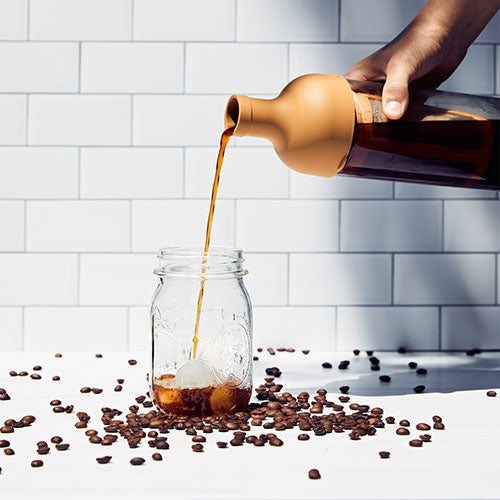
All Coffee
Experience the best specialty coffee with our selection of Signature Series, Single-origin,...
-
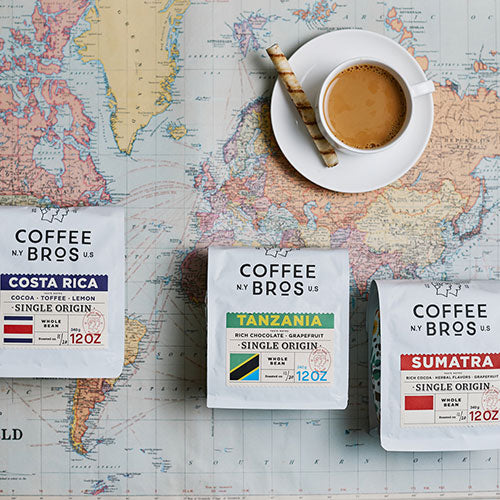
Single Origin
All of our single-origin coffees in this collection are 86+ point coffees...
-
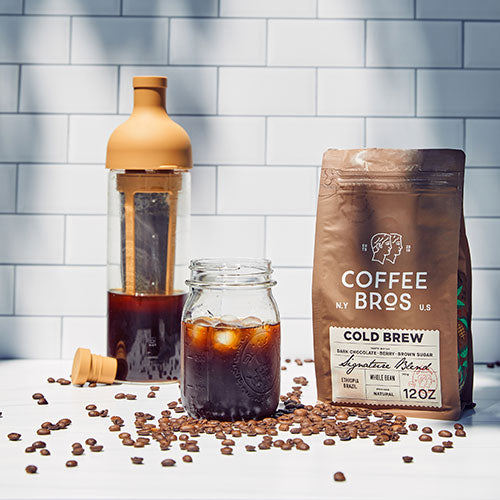
Signature Blends
Our Signature Blend coffees showcase unique flavor profiles that shine across any...
- Choosing a selection results in a full page refresh.





